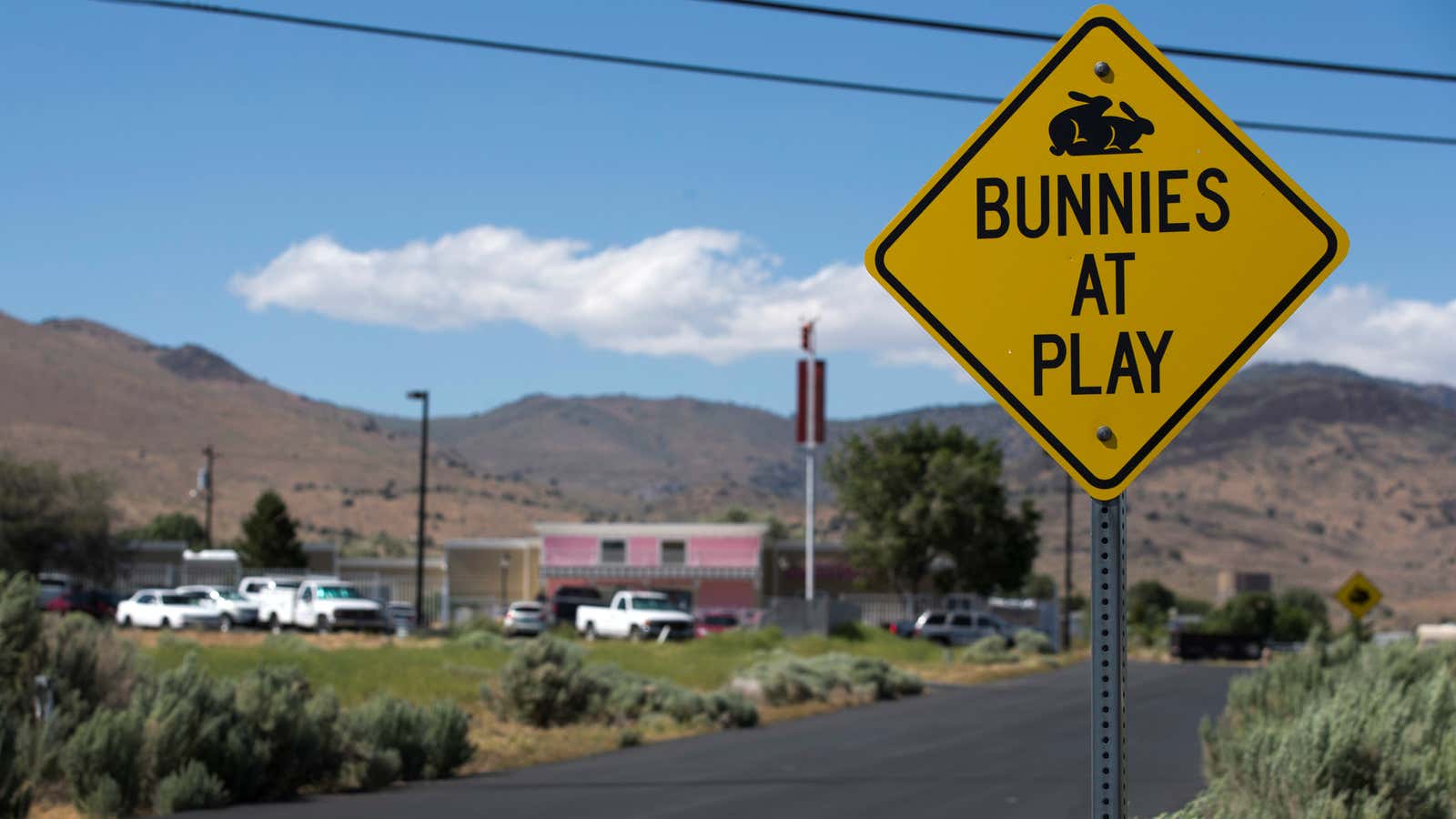Lyon County, Nevada contains many remnants of the old west. It spans more than 2,000 sq miles in an area east of Nevada’s small capital, Carson City, and, according to the 2010 census, only contains about 52,000 people. Wild horses still run free through the chilly, desert mountains. But Lyon County may be most known for another throwback to a long-gone era: its brothels. The county contains four legal brothels, including the infamous Moonlight Bunny Ranch, all formerly owned by the recently deceased Dennis Hof. (The brothel now belongs to his long-time partner Madam Suzette, though his will may be contested by his long-estranged family.)
Today (Nov. 6), citizens in Lyon County will vote whether to outlaw its legal brothels. Brothels may continue to exists in other Nevada counties, but the loss of the high-profile Bunny Ranch would likely be a huge blow to the industry. The question is divisive. Nevada has a long tradition of brothels dating back to the mid-19th century. The culture of open sex work during that era eventually gave way to a libertarian attitude that tolerated many different kinds of illicit activities, from sex and gambling to quick, easy divorces. But Nevada’s population has grown in recent years and attracted more families, it is not clear the culture will continue to tolerate legalized sex work.
Some argue that Nevada should outlaw brothels because they give the state, already synonymous to many with gambling and vice, a bad name. Others worry that brothels exploit the women who work there. A member of the Reno Gazette Journal editorial board writes, ”I do not think that women who operate in a brothel or with pimps are choosing the profession. I think they are uninformed, uneducated and taken advantage of by men and women who are involved in the business.”
Those making the case to keep brothels legal say sex work will happen no matter what, so it may as well happen in safe, regulated environments. University of Nevada-Las Vegas sociologist Barbara Brents, for example, says her research shows that sex workers are better off in legal brothels than working in the illegal alternative context.
In all of Nevada’s brothels, sex workers are regularly screened for diseases, there is security, and all women must be licensed sex workers (a process which involves a thorough background check). It is also worth noting the brothels generate significant tax revenue paid directly to the state and county (in addition, the women pay taxes on their income to the federal government, but Nevada does not have an income tax). Some of the women in the brothel have pasts of horrific abuse and exploitation. But it is impossible to generalize. Some of the shrewdest business women I’ve ever met work there too.
Hof once told me he never felt the legal status of his brothels was secure. The referendum shows how fragile their position is. Odds are the brothels will survive the 2018 referendum, but their long-term future has never been more uncertain. Hof was the most vocal and visible defender of legal brothels. With him gone, and the family drama in the wake of his death, it’s no guarantee that Nevada will continue to support legal sex work.
